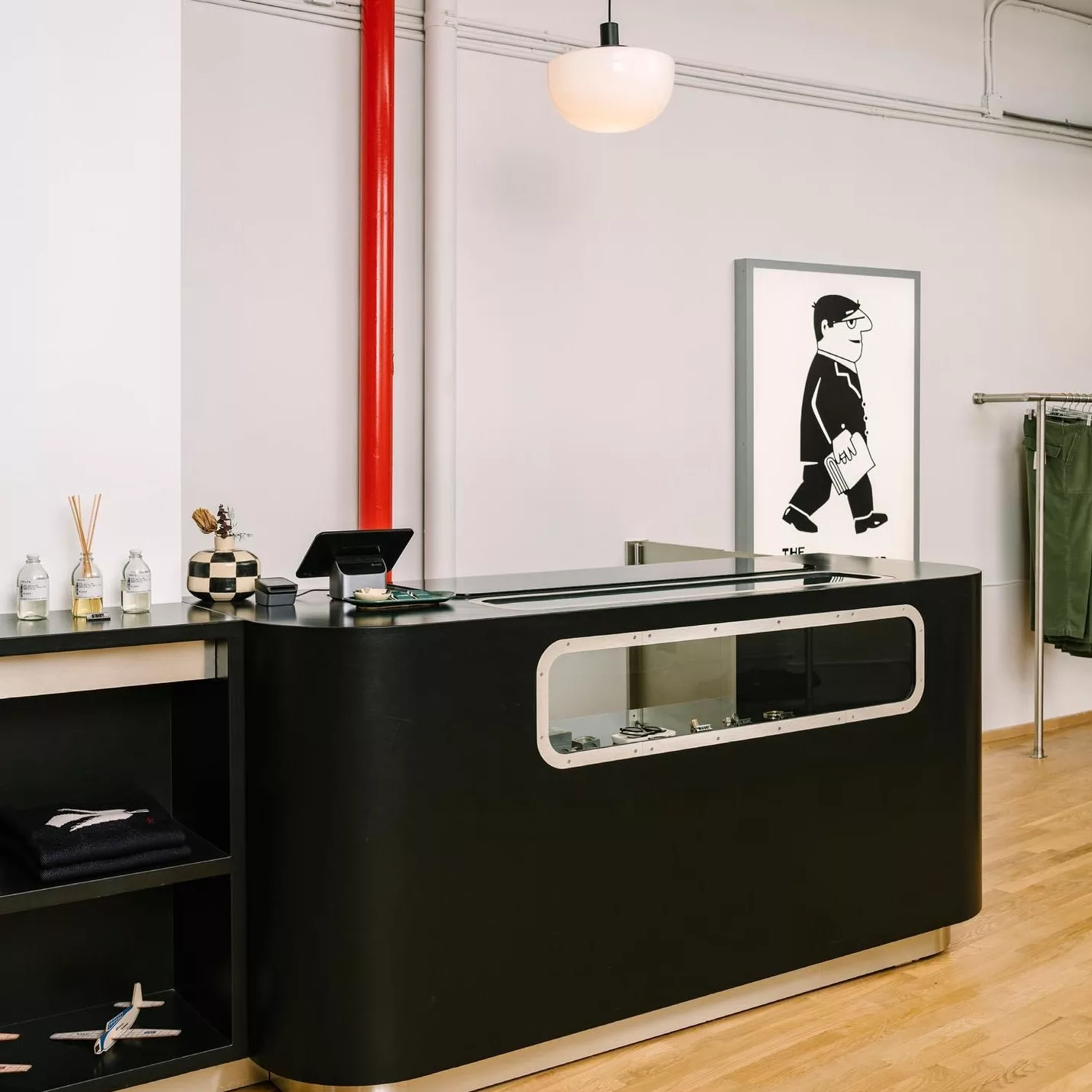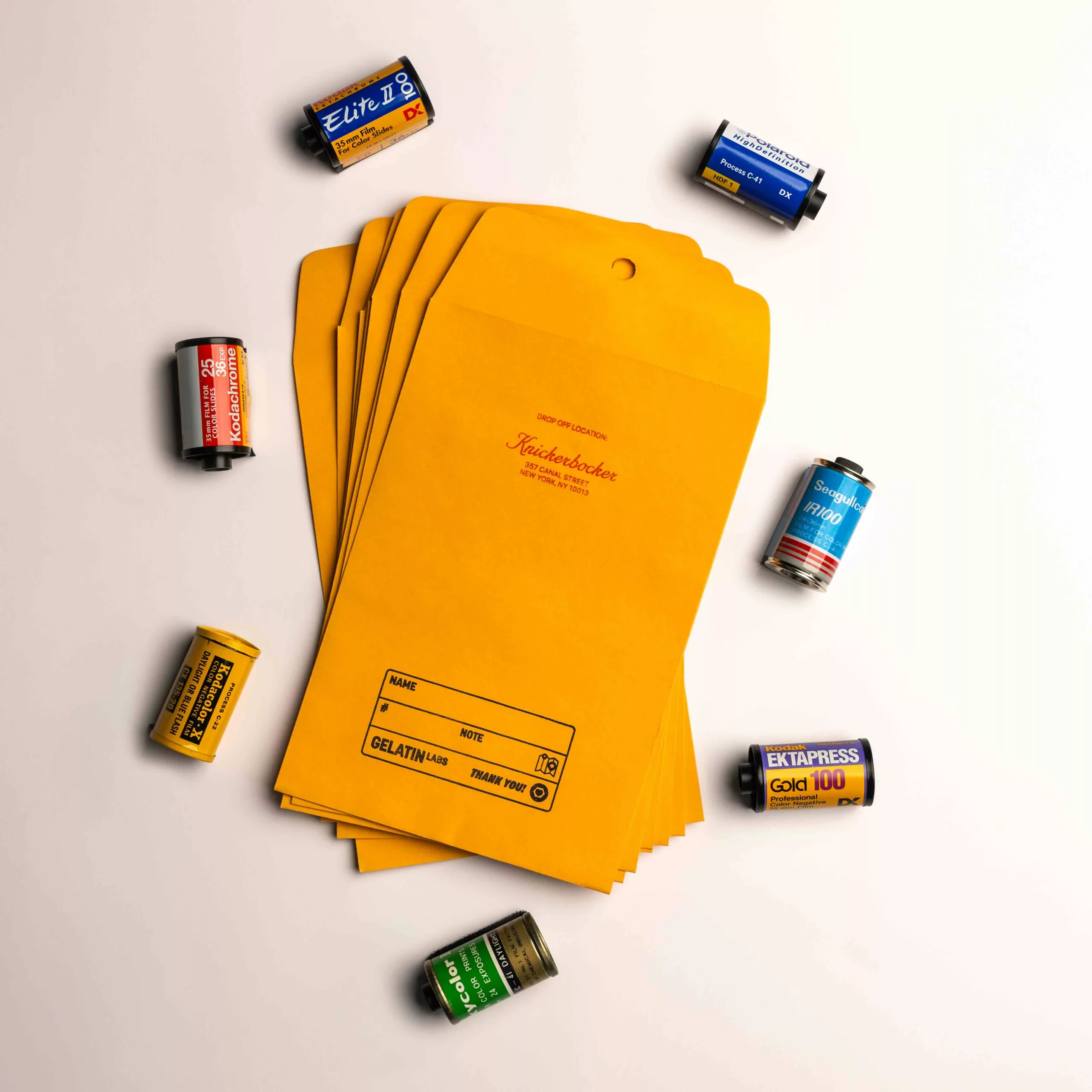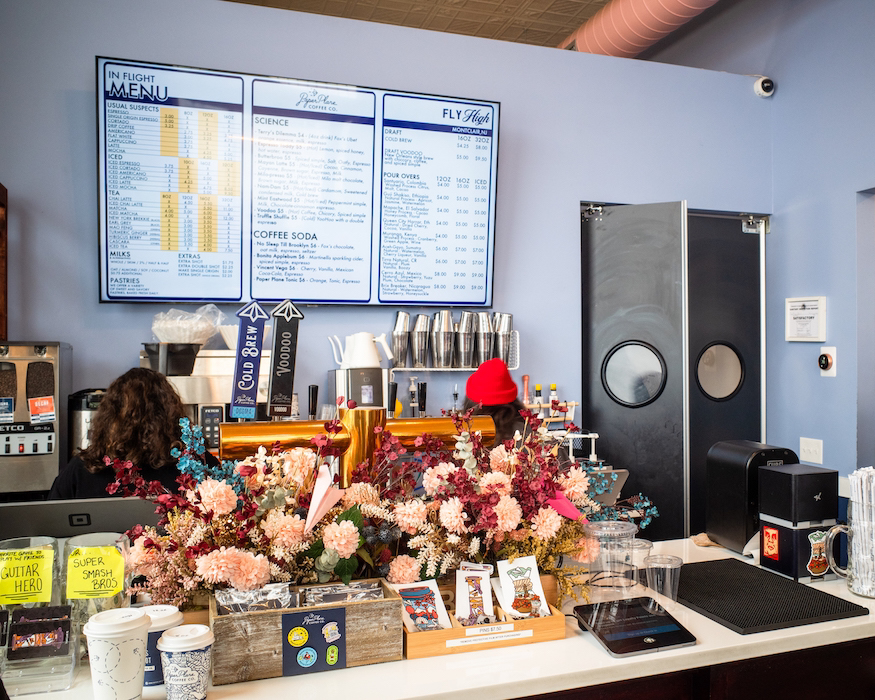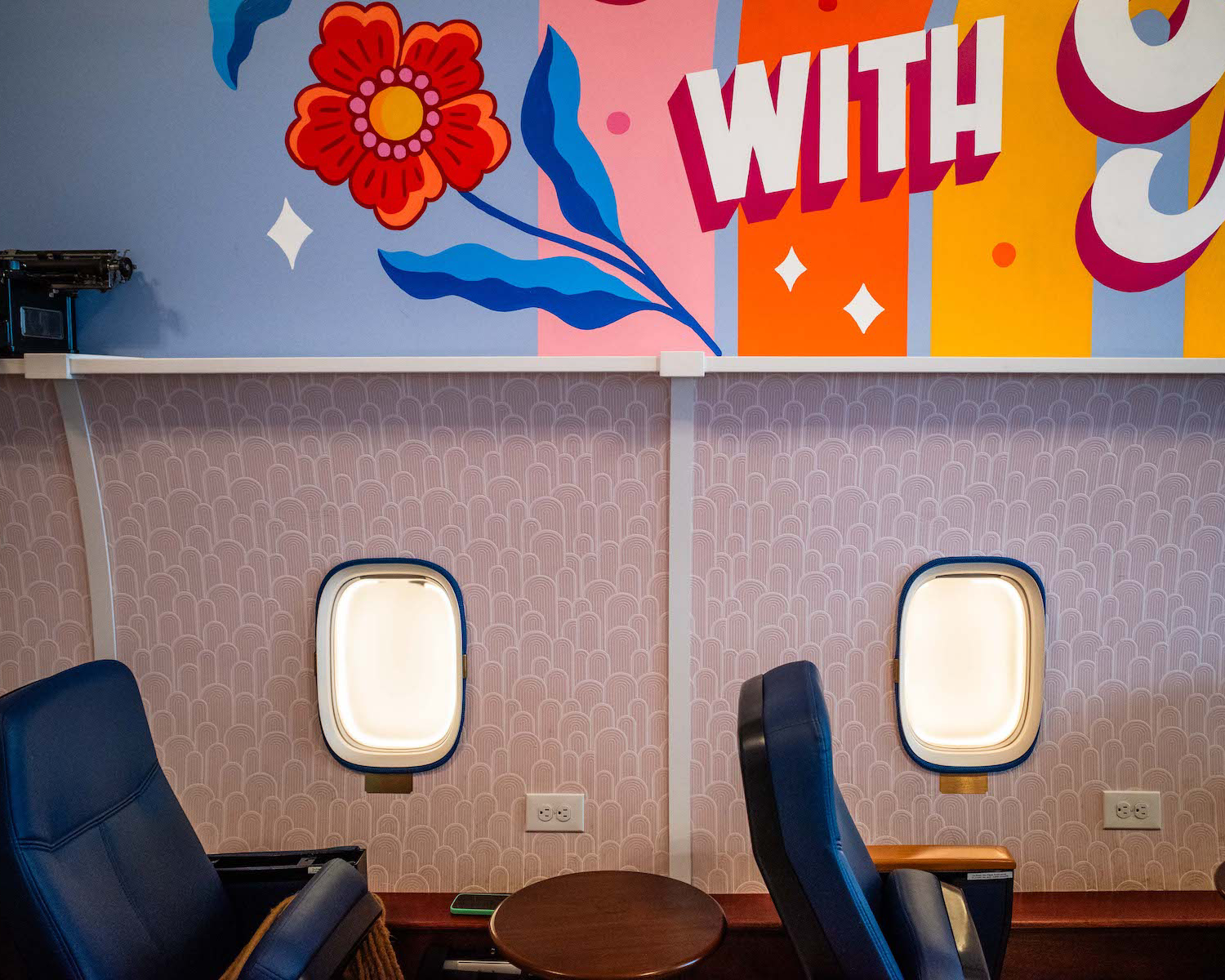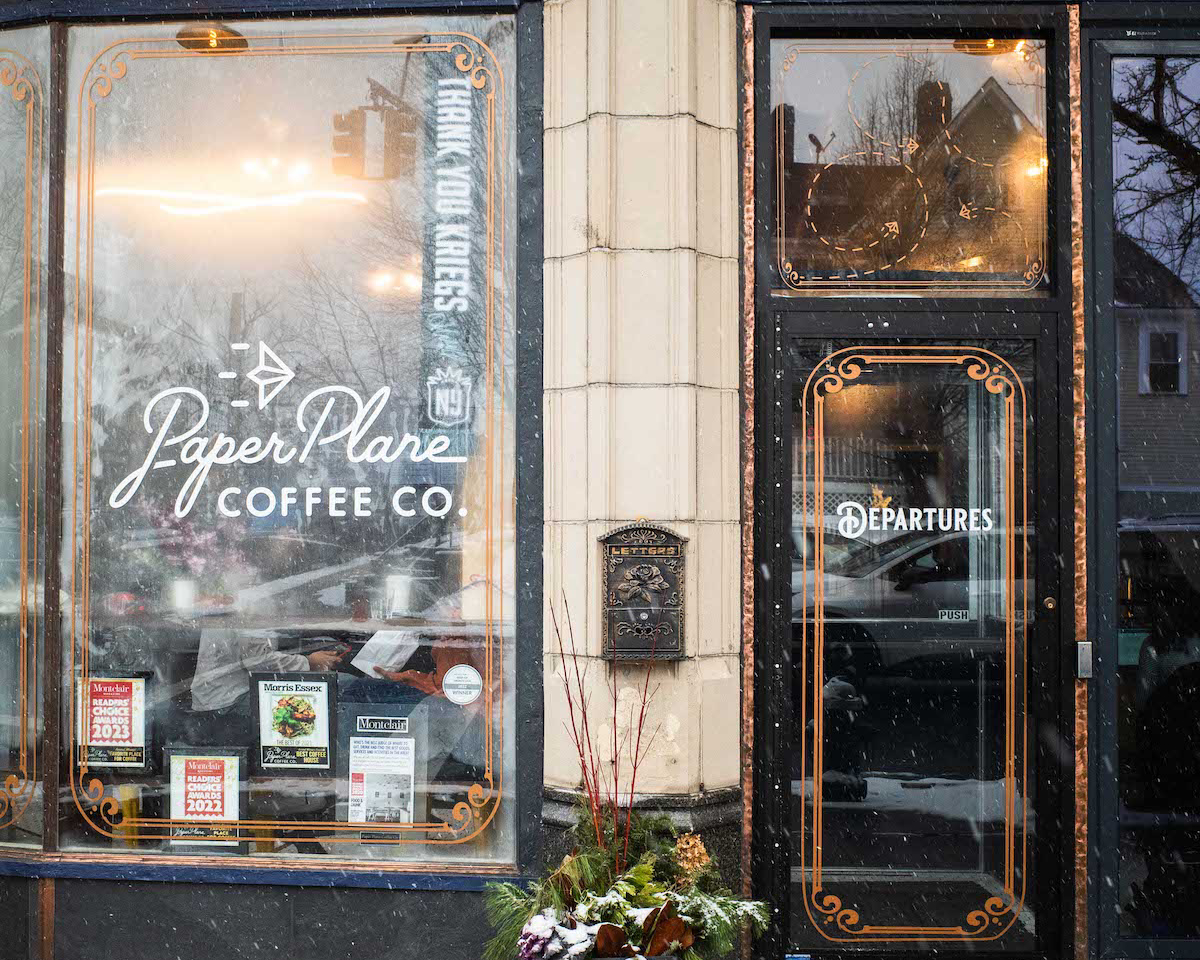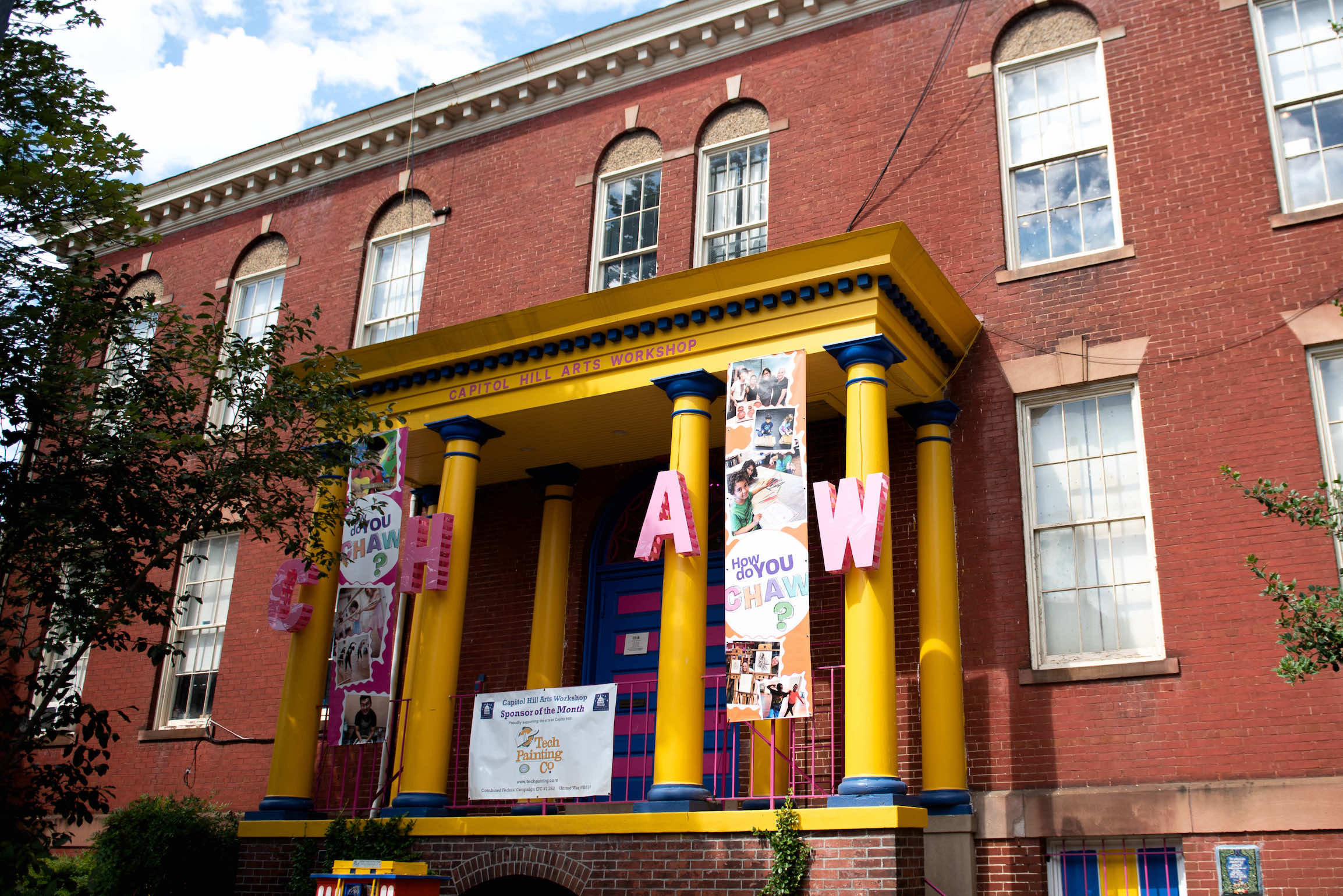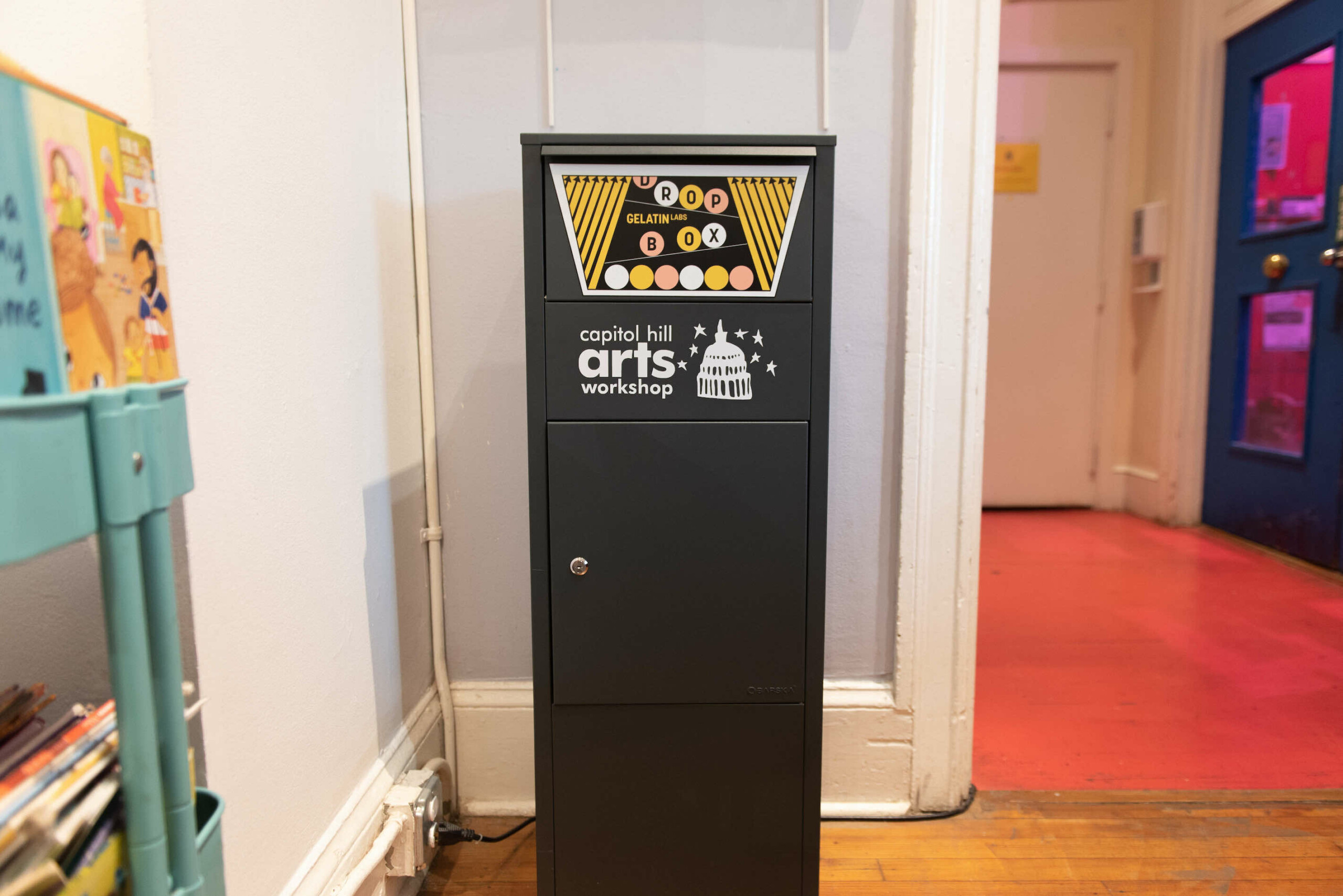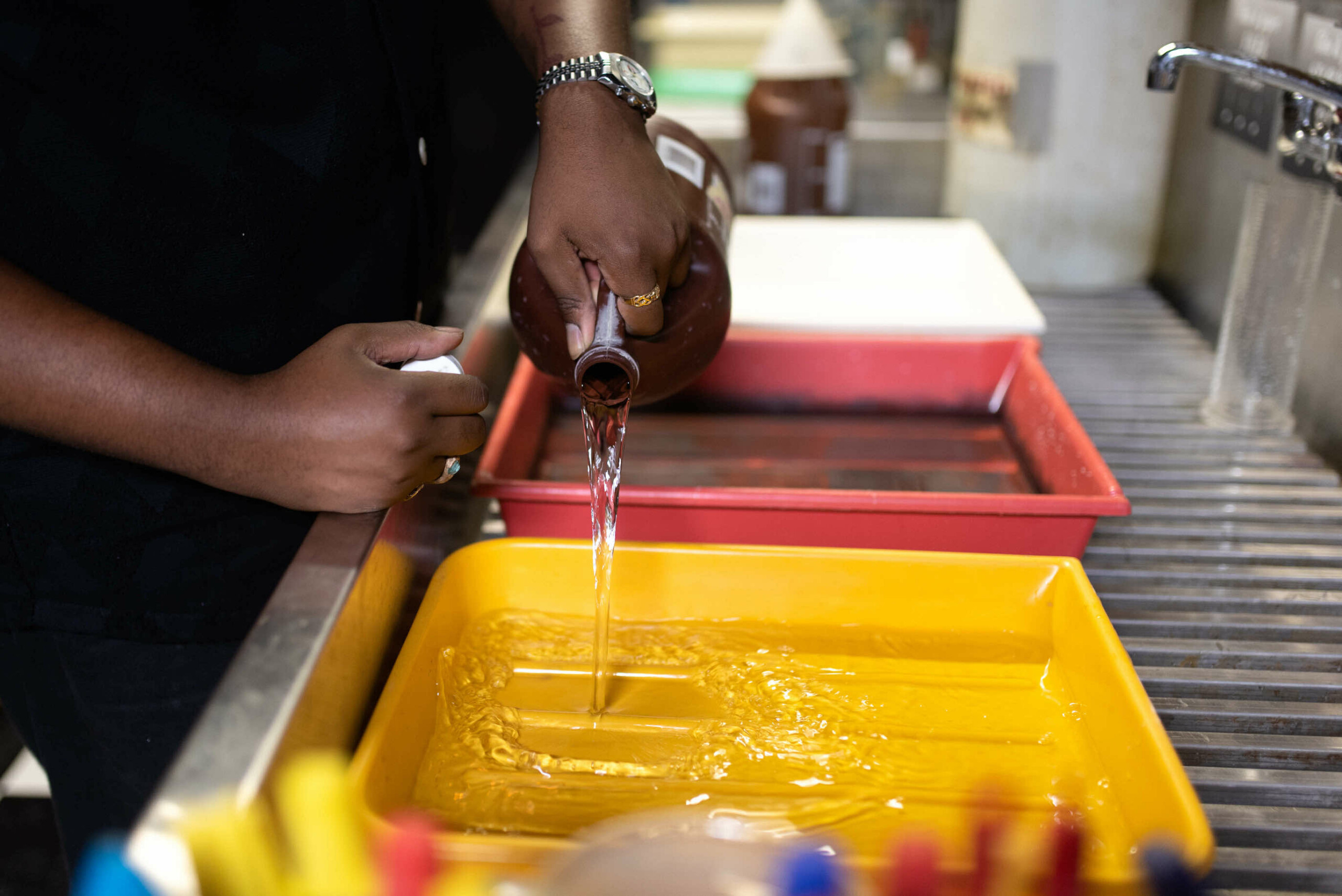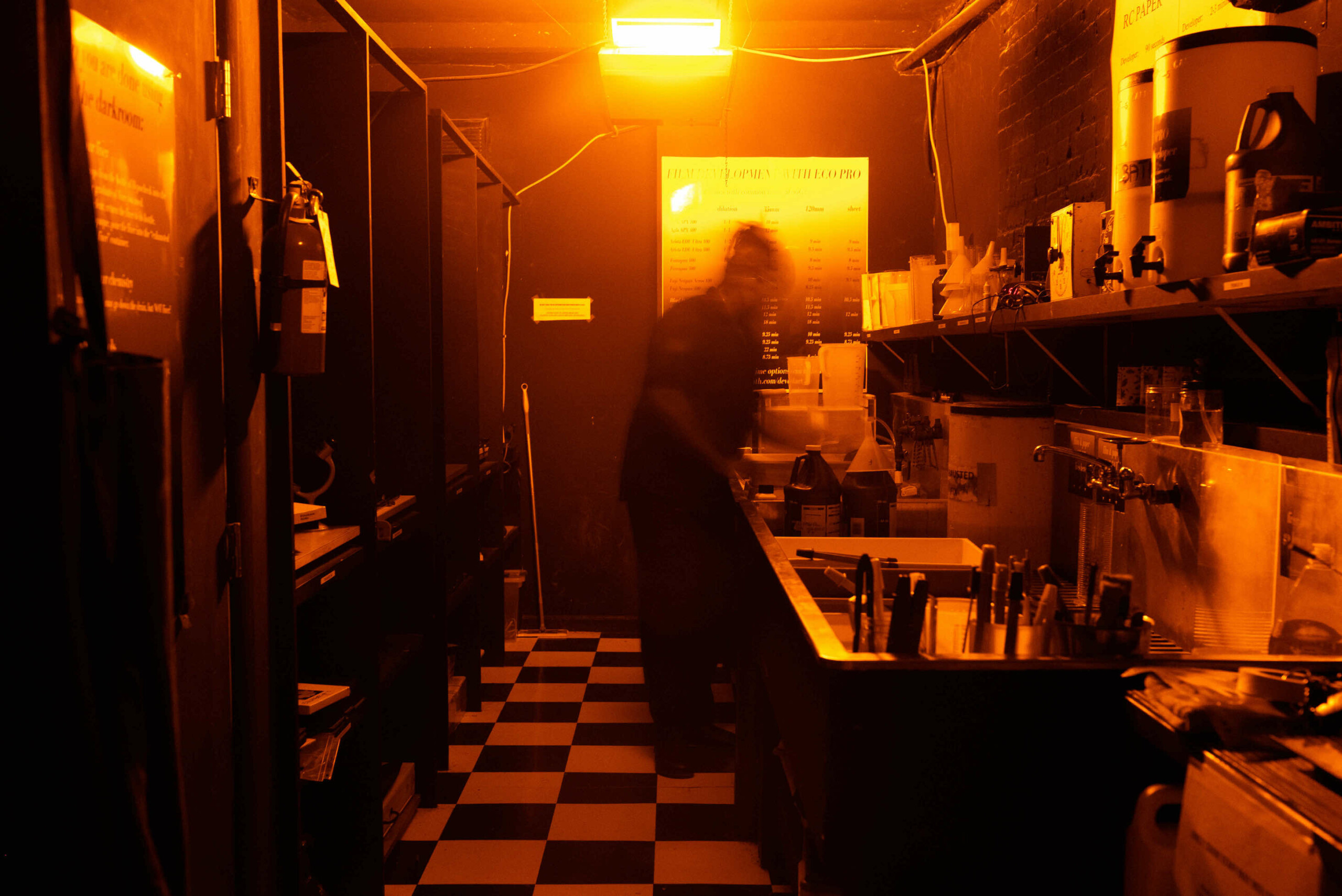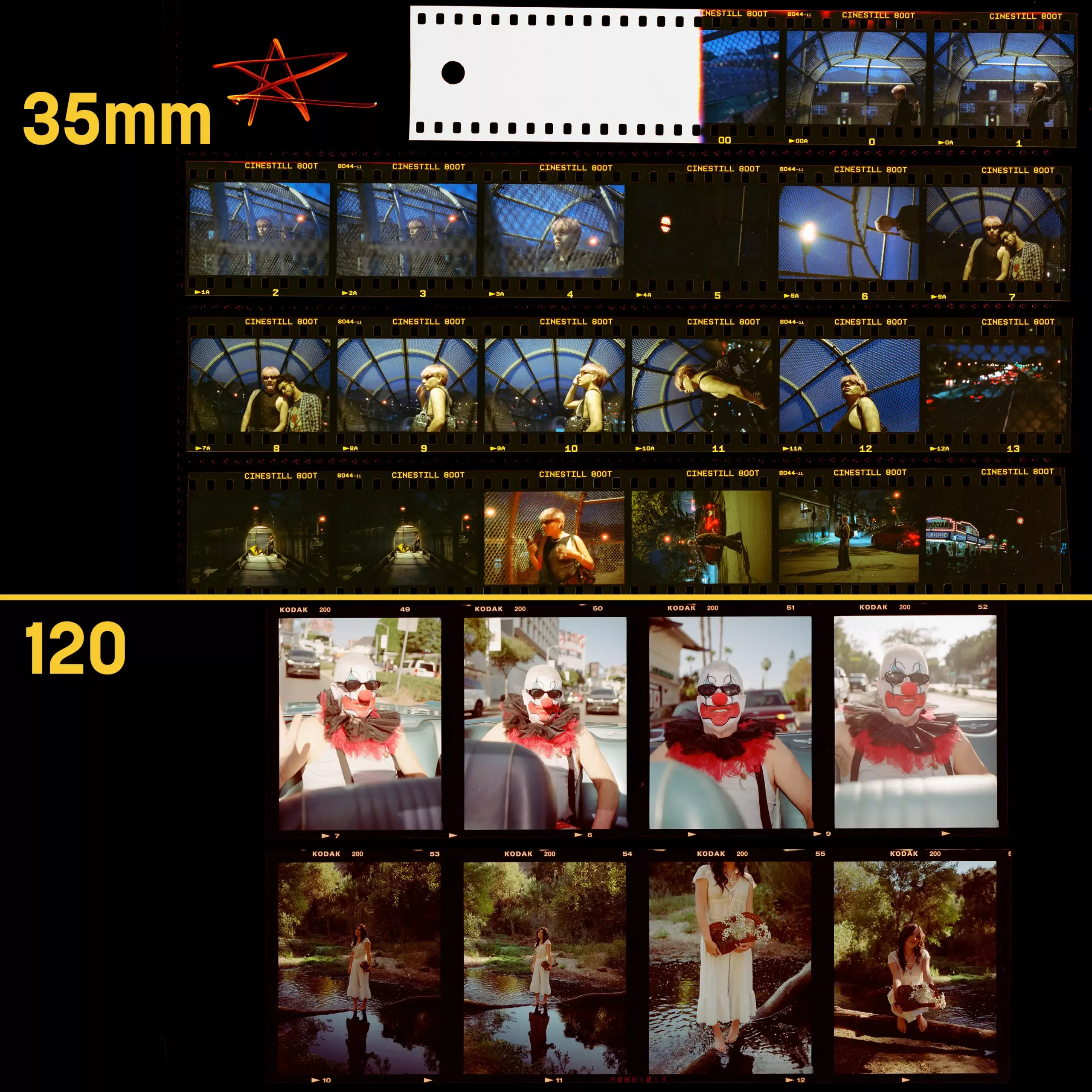Written by Carlos Sanchez, edited by Uju Ike
| Carlos Sanchez, a Photo Journalism Student, a summer intern here at Gelatin, and a Maplewood, New Jersey local, shares his experience documenting the opening of the new and improved Maplewood Memorial Library. Carlos reflects on the significance of the opening for the community and what it meant to him to photograph the event on film. Carlos’s photographs beautifully depict the community enjoying the new space, each photo a celebration of the meaningful moments the library fosters. |
A few weeks ago, I stood outside the newly rebuilt Maplewood Memorial Library with my Ricoh KR-5SuperII and Pentax Spotmatic loaded with Kodak Portra, waiting for the ribbon to fall. The sun filtered through a sky still clearing from morning rain, kids tugged their parents toward the doors, and volunteers handed out programs. But what struck me most was the symbolism playing out in front of me: a community coming together to celebrate the return of a beloved institution. And I had the privilege of documenting it on film.
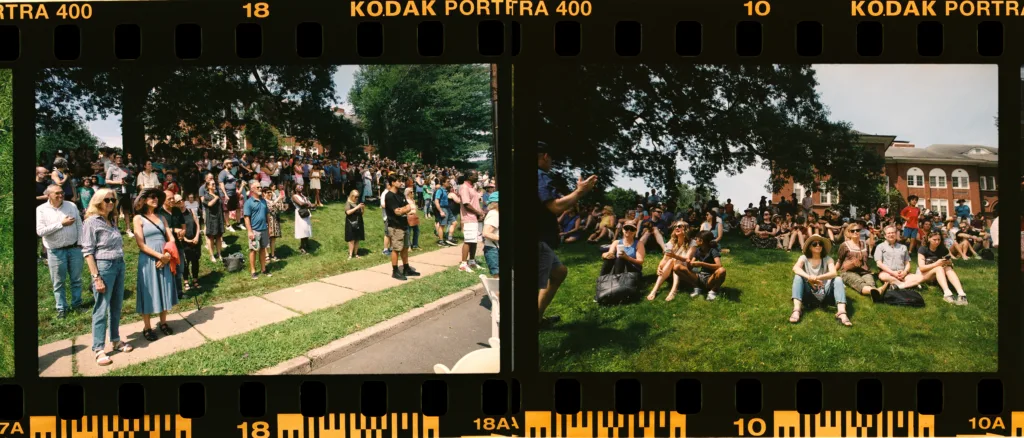
There was something poetic about using analog film to capture the reopening of a space devoted to another form of analog media; the printed word.
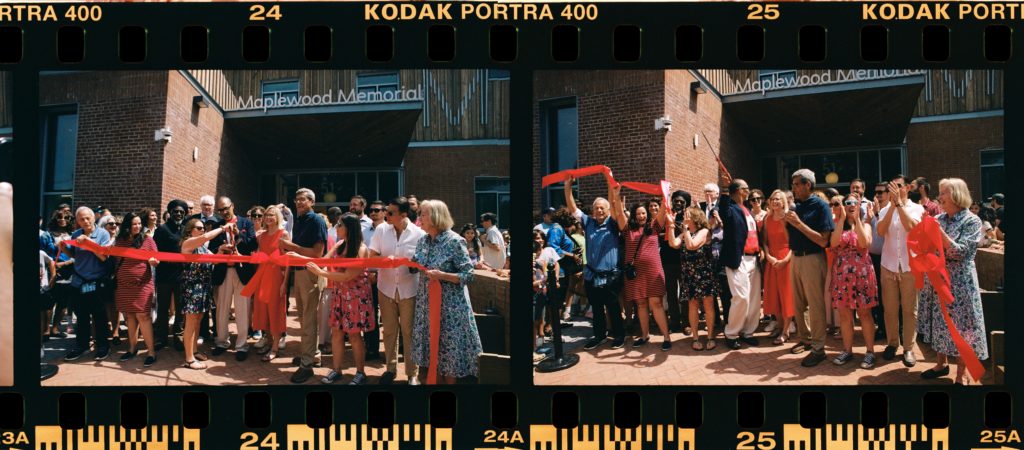
In a digital world that moves at the speed of a refresh button, both books and film photography remind us to slow down, to be present, to feel the weight of the moment. This felt like one of those moments.
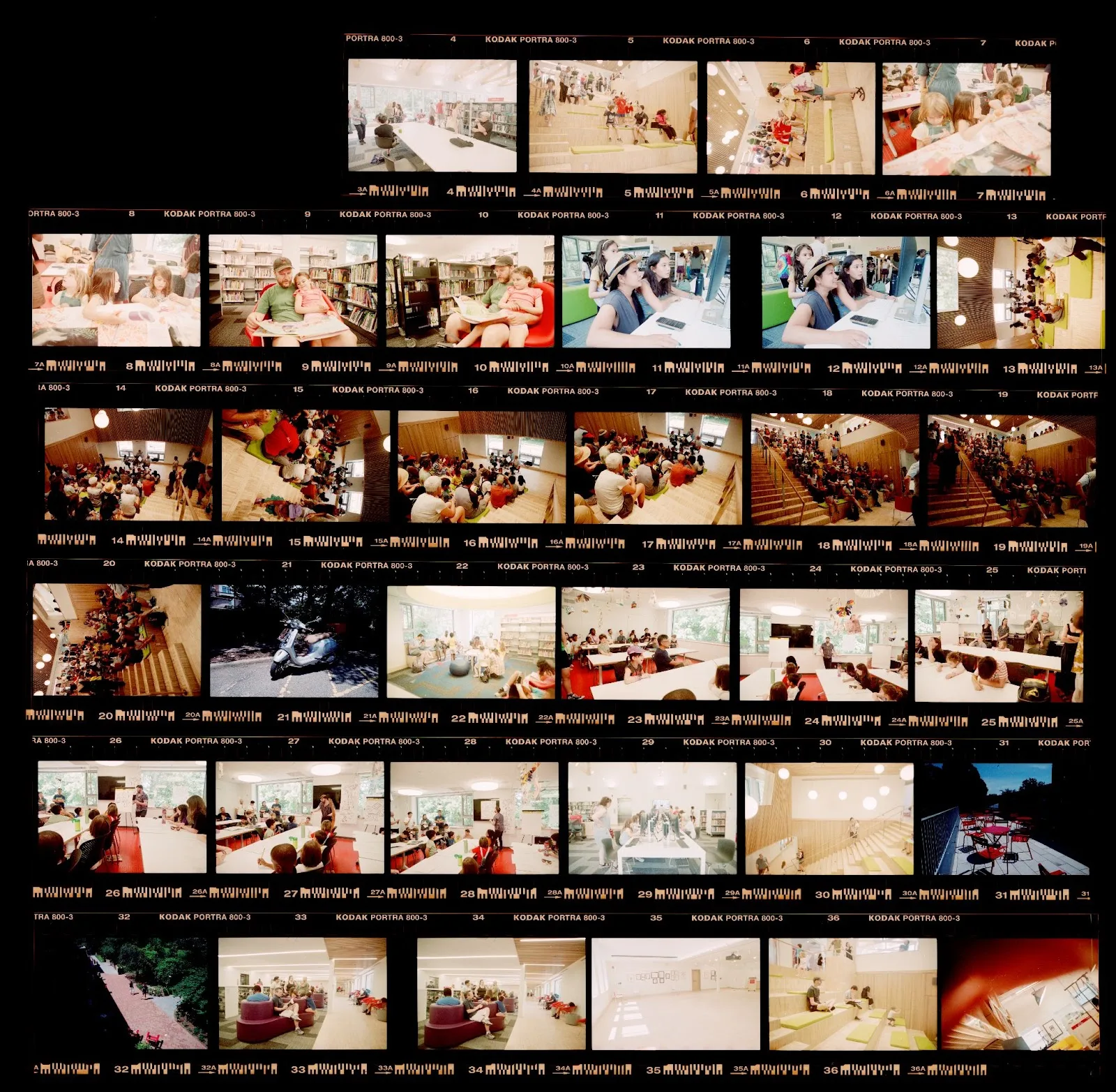
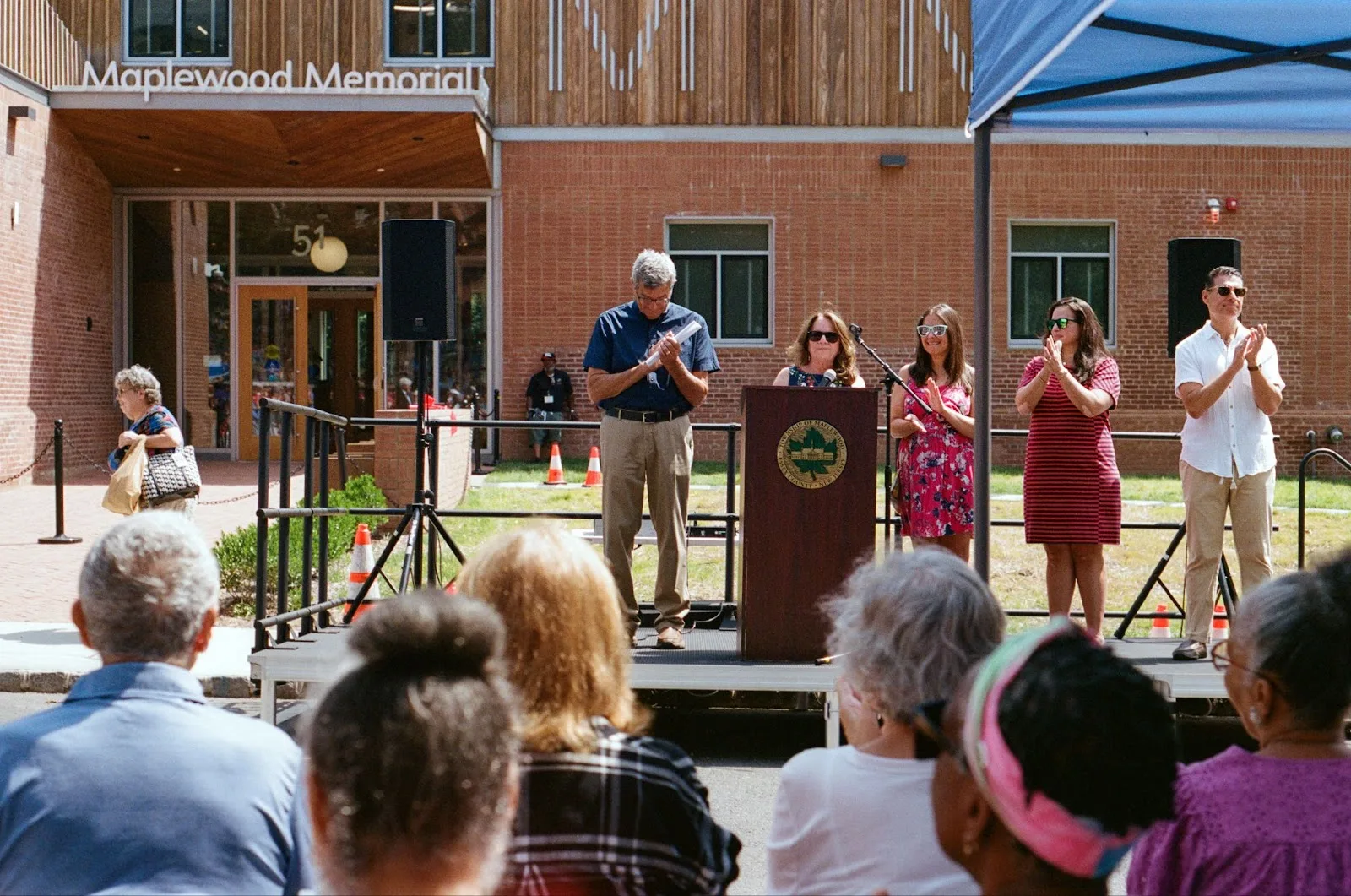
A Library Reborn
The Maplewood Memorial Library had been closed for nearly four years following devastating flood damage from Tropical Storm Ida. That’s four years of silence in a place meant to buzz with curiosity, conversation, and community. But the reopening wasn’t just about restoration; it was a complete reimagining.
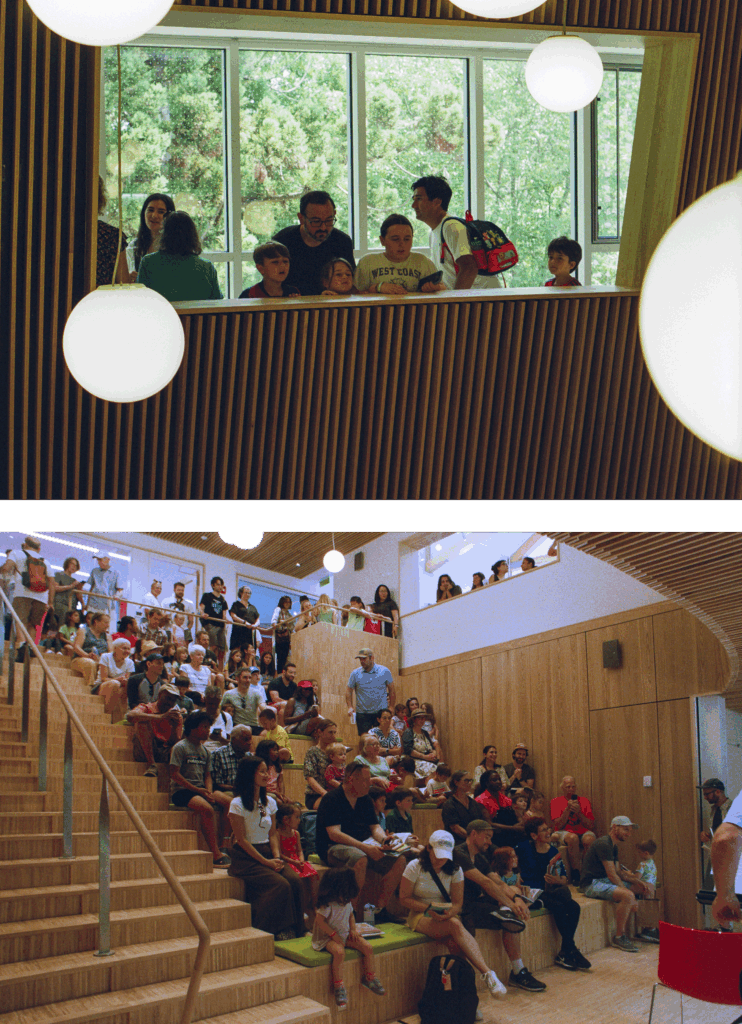
Bottom: Families sit on Forum Steps watching a musical performance.
Now 33% larger, the 32,000-square-foot building has been transformed into New Jersey’s first LEED Gold-certified library. It’s all-electric, equipped with solar panels, bird-friendly glass, a green roof, and daylight sensors stood as a brilliant fusion of sustainability and accessibility. As I wandered through the new spaces, photographing everything from the light-filled Teen Room to the elevated Forum steps designed for informal talks, I could feel the care that had gone into every corner.
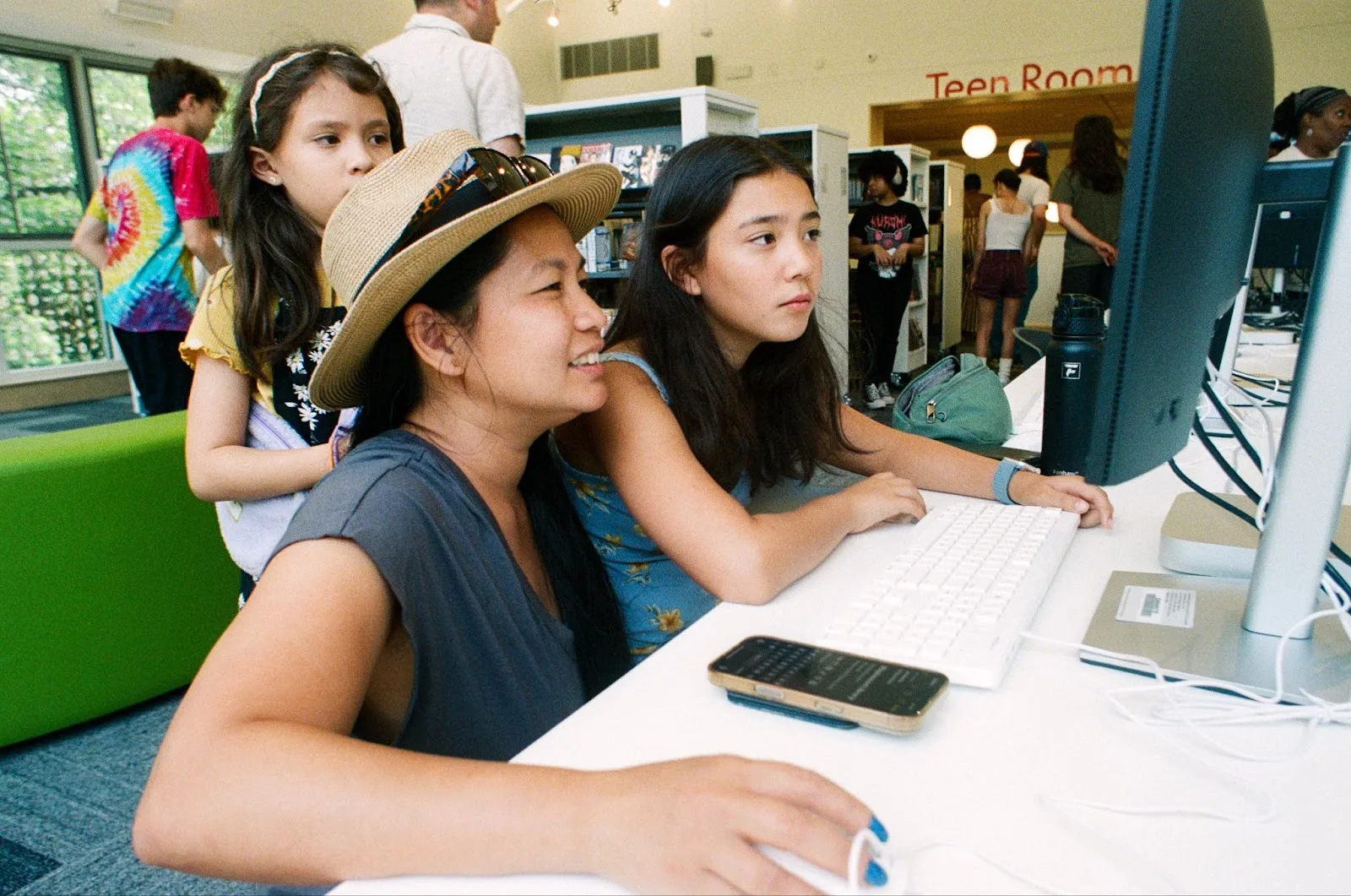
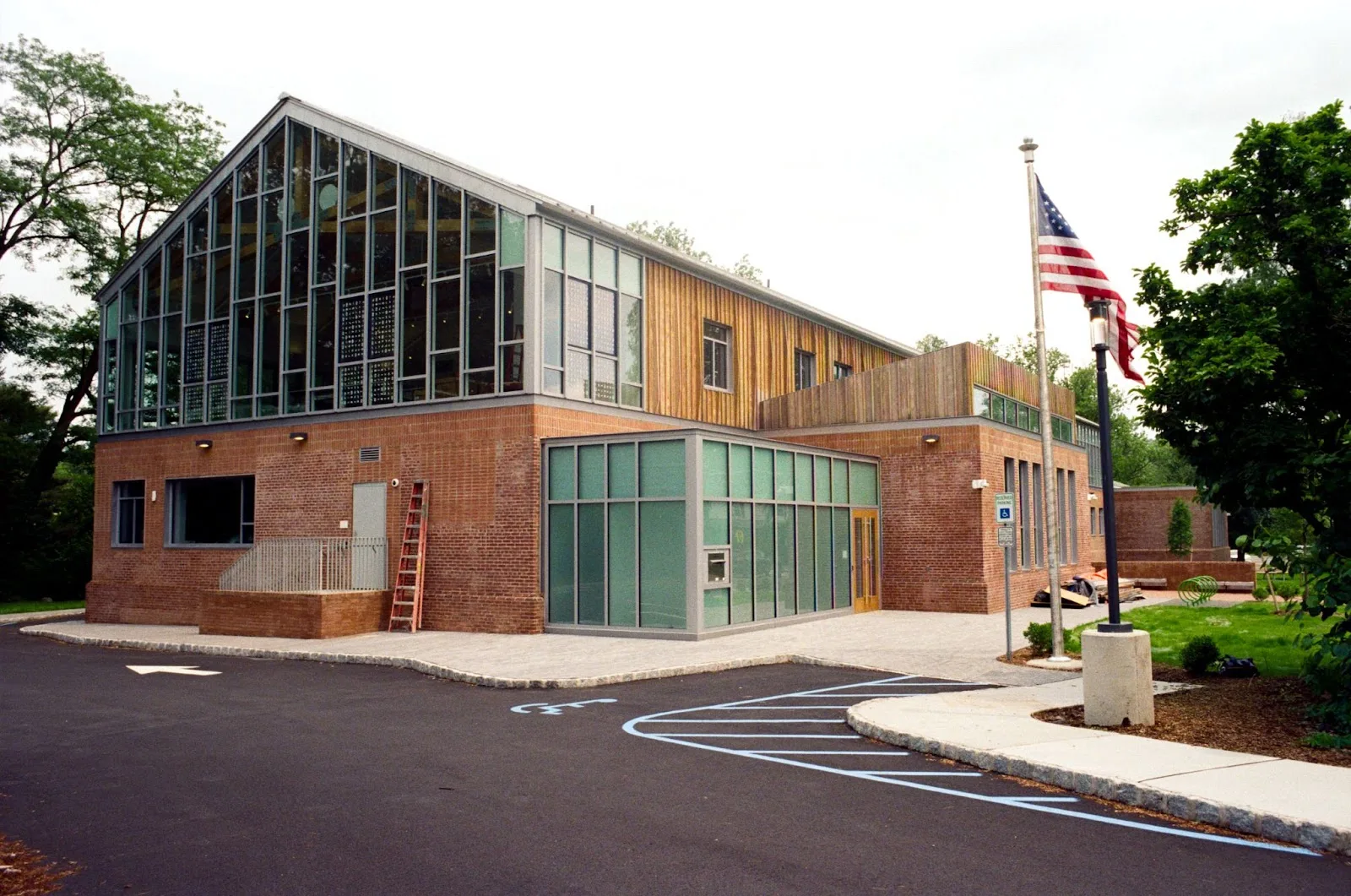
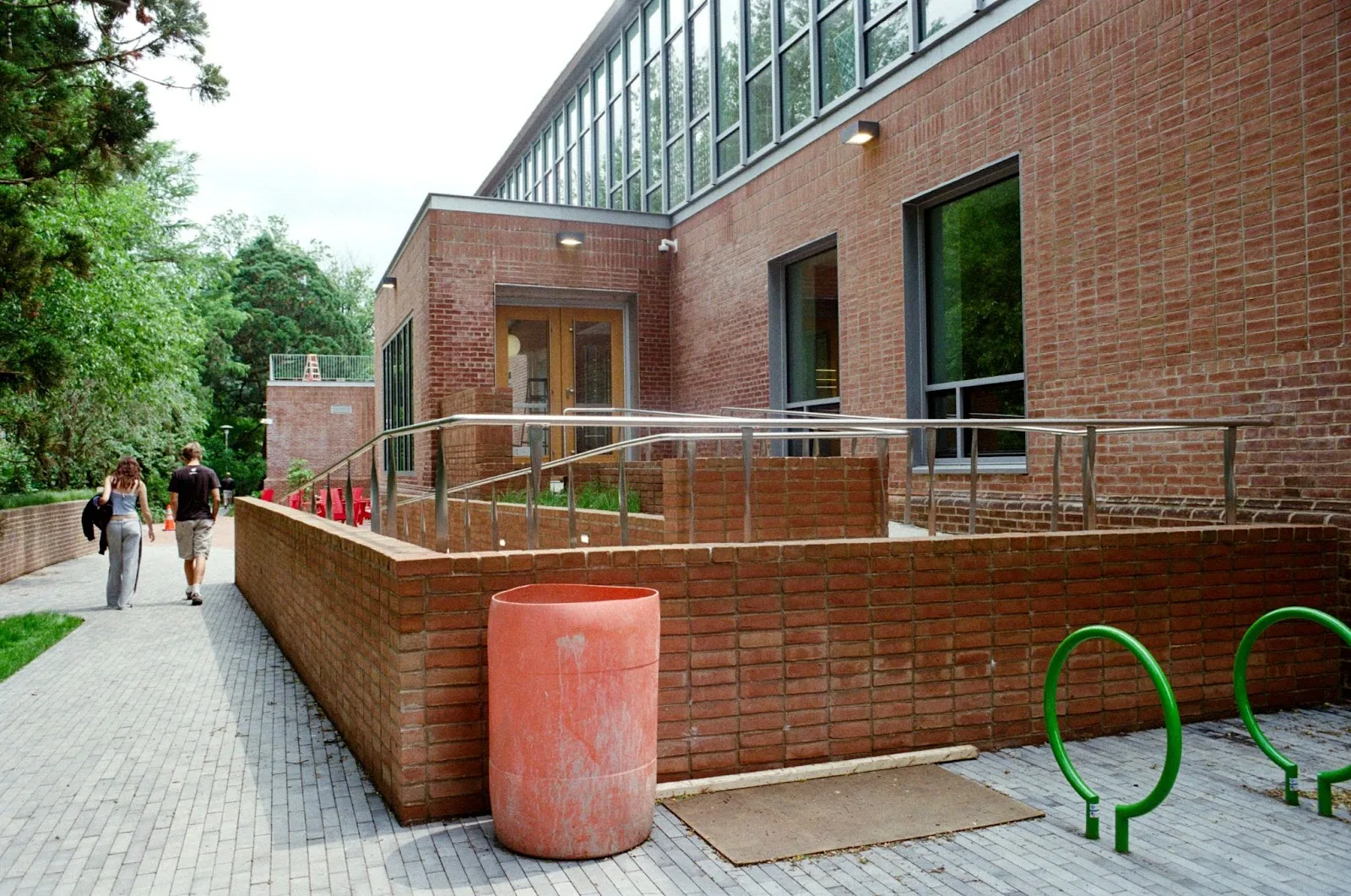
Why This Moment Matters
At a time when libraries across the country are facing defunding, censorship, and existential scrutiny, Maplewood made a bold, beautiful choice: to invest in a place where everyone belongs. To double down on public space, on literacy, on the idea that knowledge should be open for all. No subscription required.
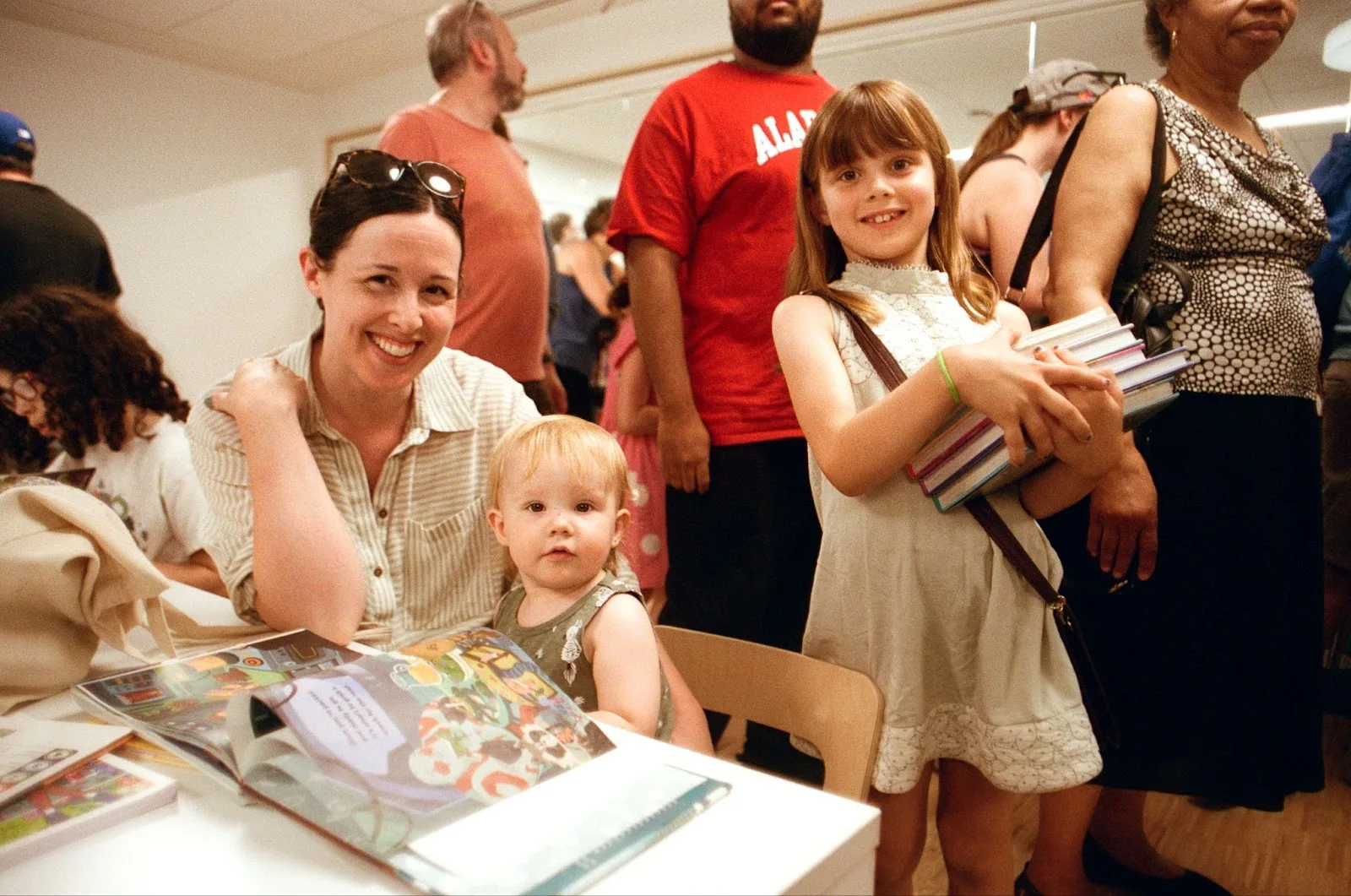
Photographing the ribbon-cutting felt less like covering an event and more like archiving a declaration. This wasn’t just a local reopening. It was a quiet act of resistance against a growing trend of cultural erosion. This was a town saying, “We still believe in books. We still believe in community.”
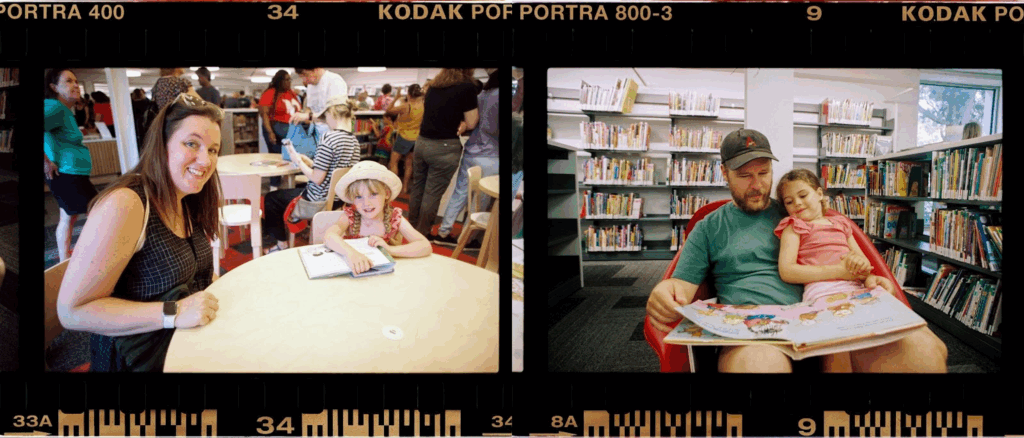
Right: Alex Kozar and daughter Aidan Kozar read in the children’s room.
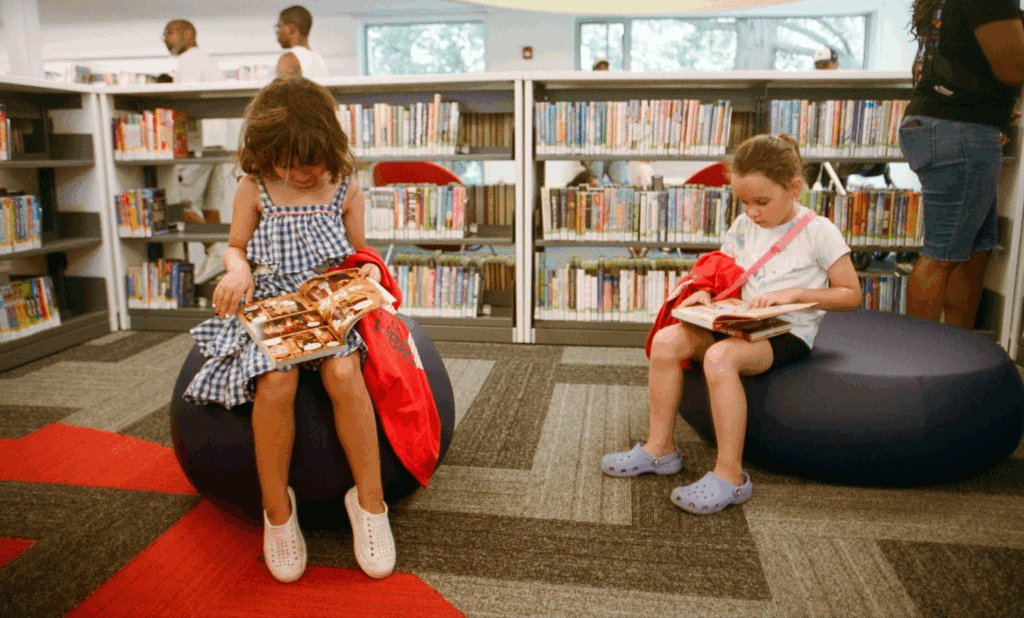
Why I Shot It on Film
As someone who shoots both film and digital, I’m often asked why I don’t just “go digital.” But for me, film is about intention.
You don’t get unlimited shots.
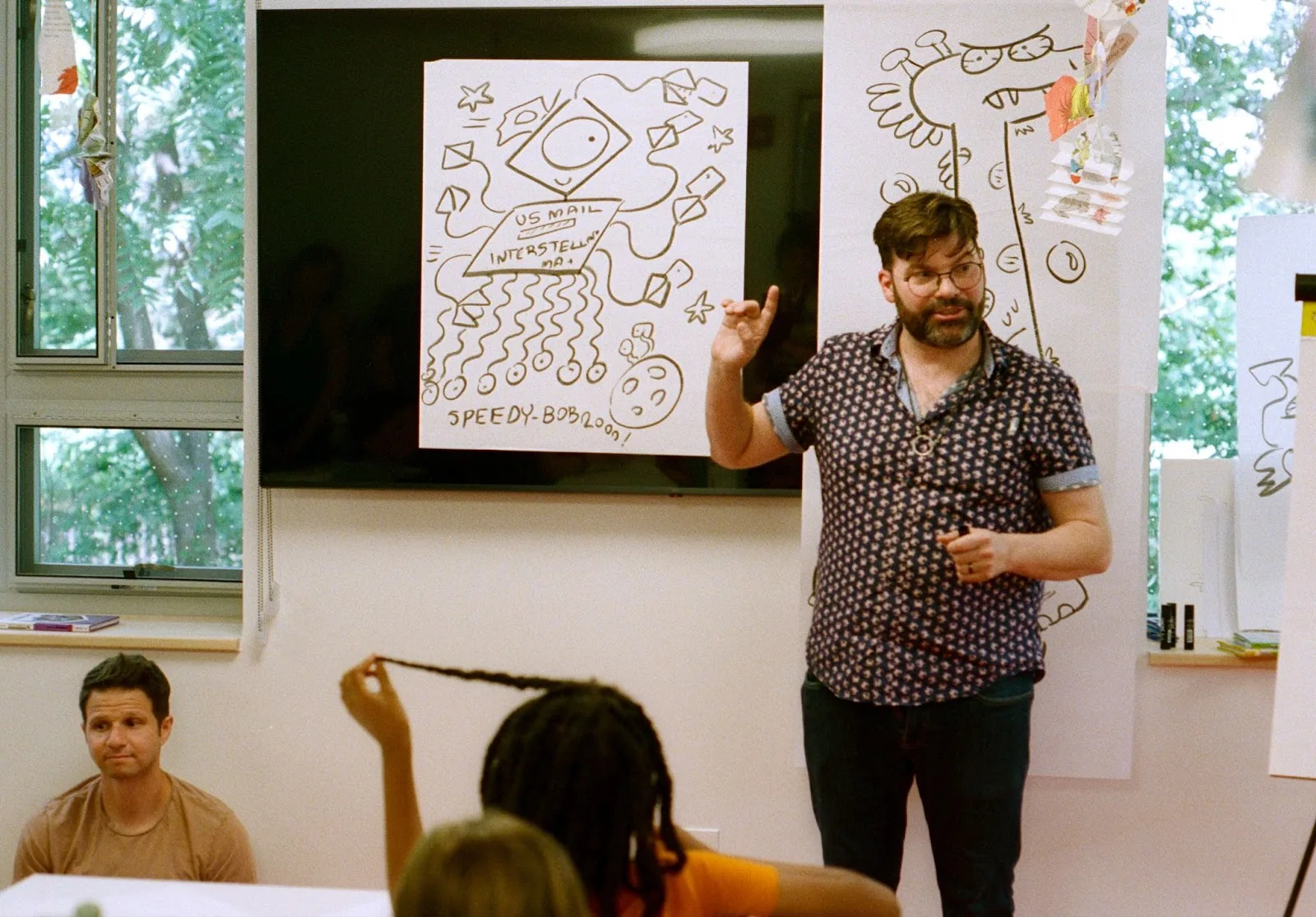
You don’t get to chimp the screen after every frame.
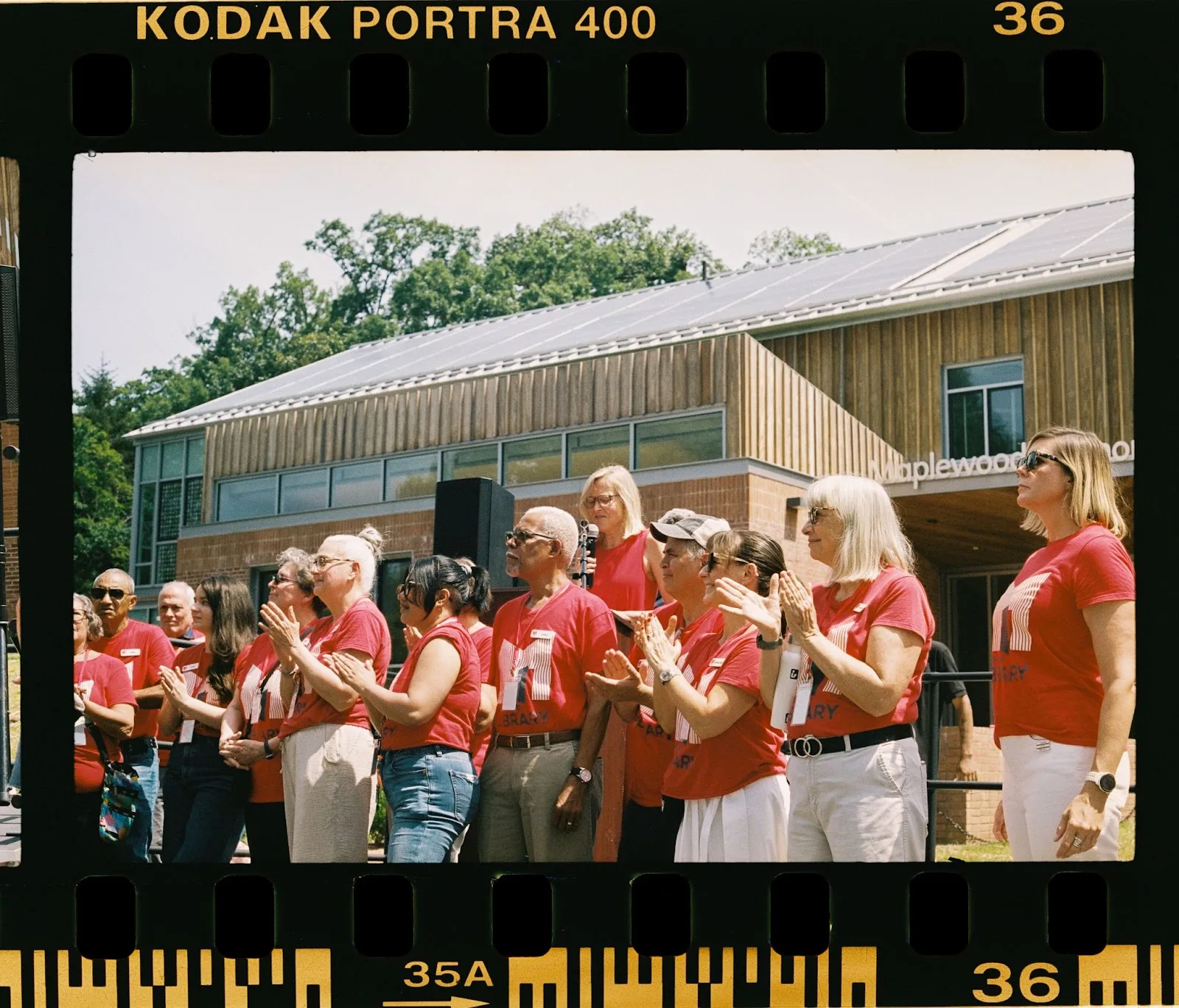
You focus, you meter, you wait, and then you release.
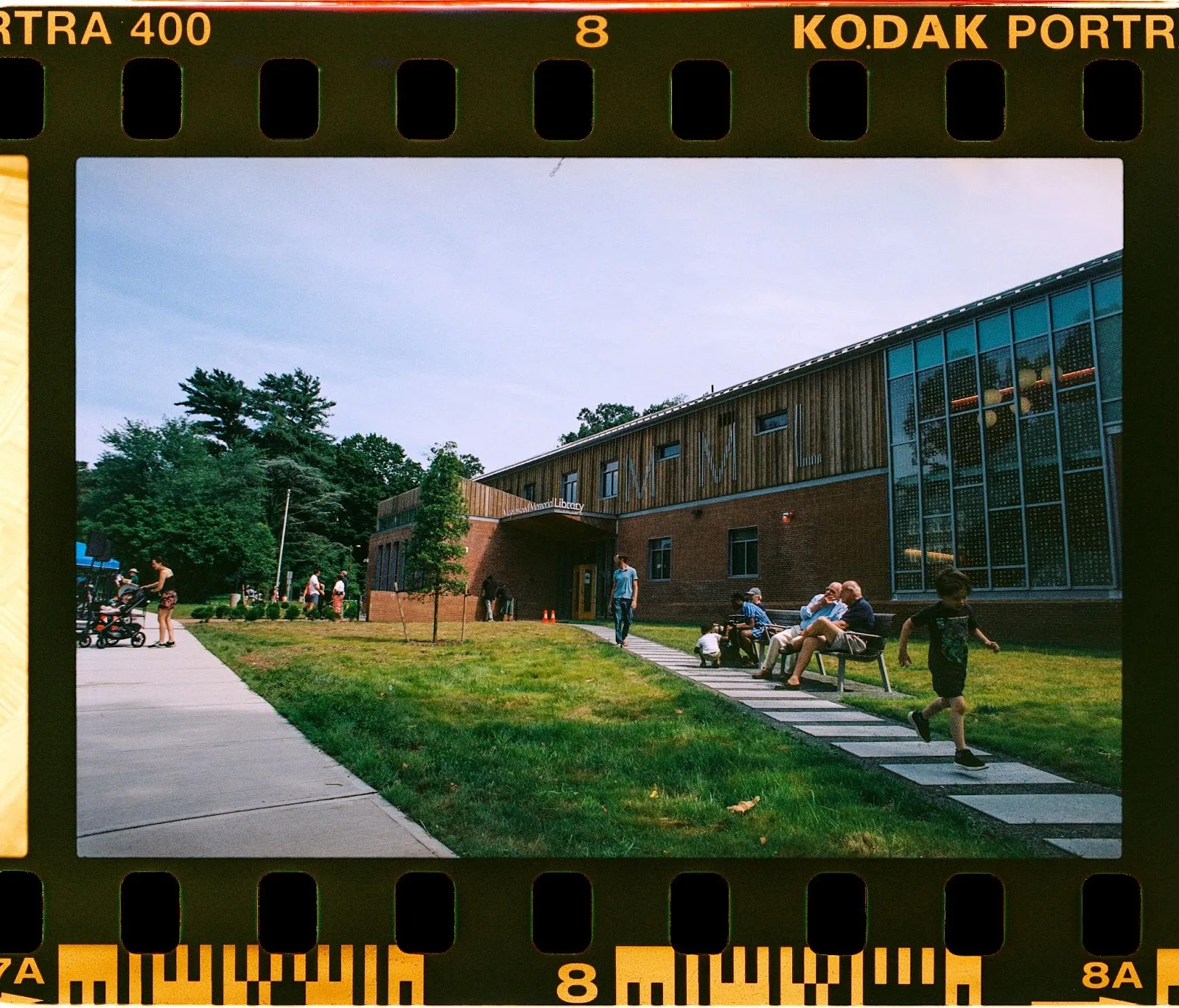
There’s risk, beauty, and most importantly, trust involved. It forces you to trust in your ability to shoot in any situation; trust only acquired through failure and success. And as all these factors run through your head, you pare it down to the essentials and click. I find great fulfillment in this process of creating: where confidence becomes paramount.
In digital photography, a bad experience can be remedied by a slider. But film requires more care and a deep understanding of your tools. For example, the light meter can be the most helpful and most detrimental tool at a photographer’s disposal. In many situations, your light meter can be almost guaranteed to lead you in the right direction. But in others, its simplicity can distract from other factors; ones that can only be noticed through experience.
Documenting the reopening of this library, a space that had survived both literal and ideological storms, deserved that kind of attention. Every frame I took that day is a tangible artifact of something real: people choosing hope, paper, story, and space.
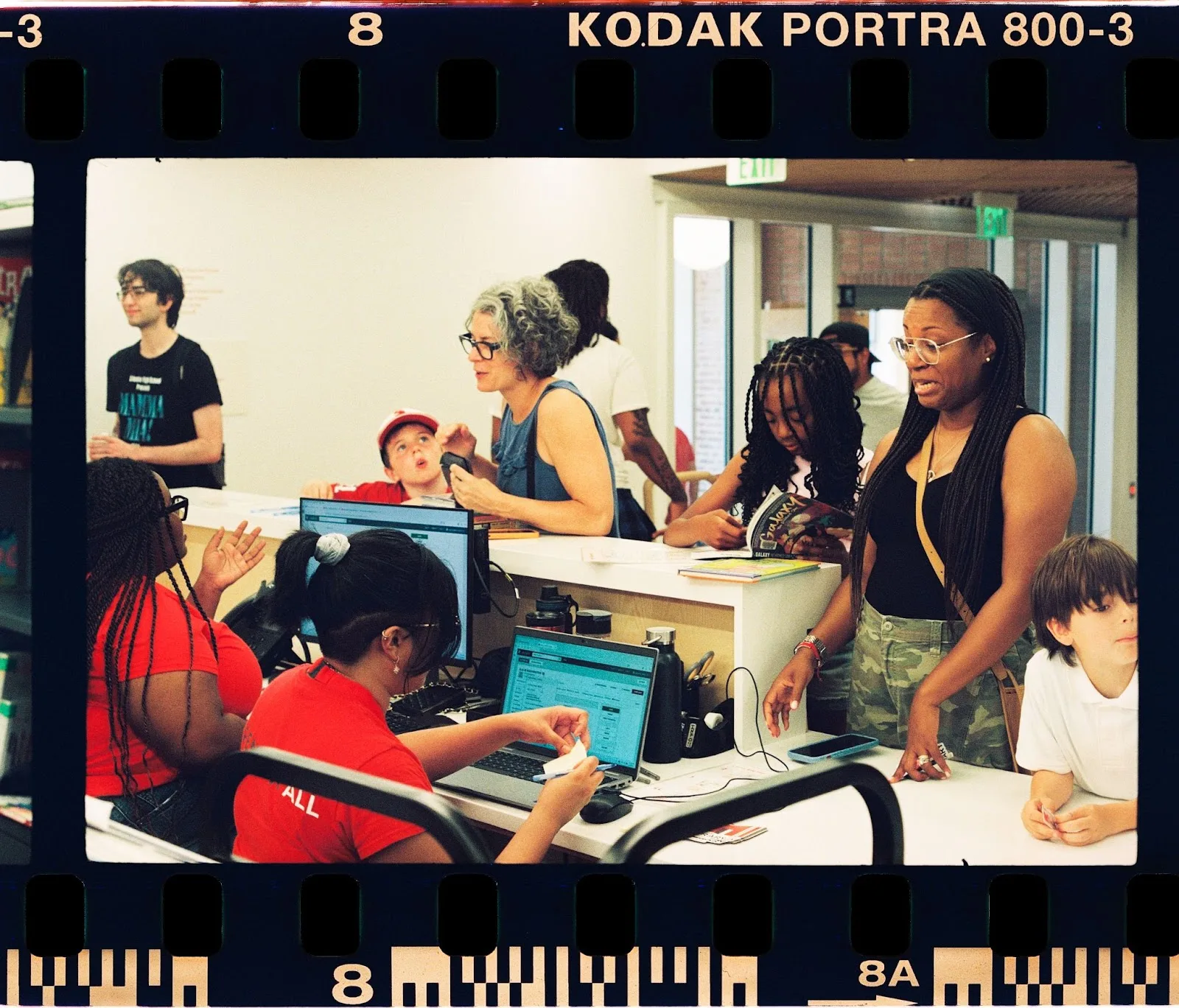
At Gelatin Labs, we often talk about how film is memory. Not just visually, but physically. The chemical imprint of a fleeting moment made permanent. That day in Maplewood, I saw memory being built again. And now, those frames live on. Not just in my contact sheets, but in the collective memory of a town that dared to rebuild something vital.
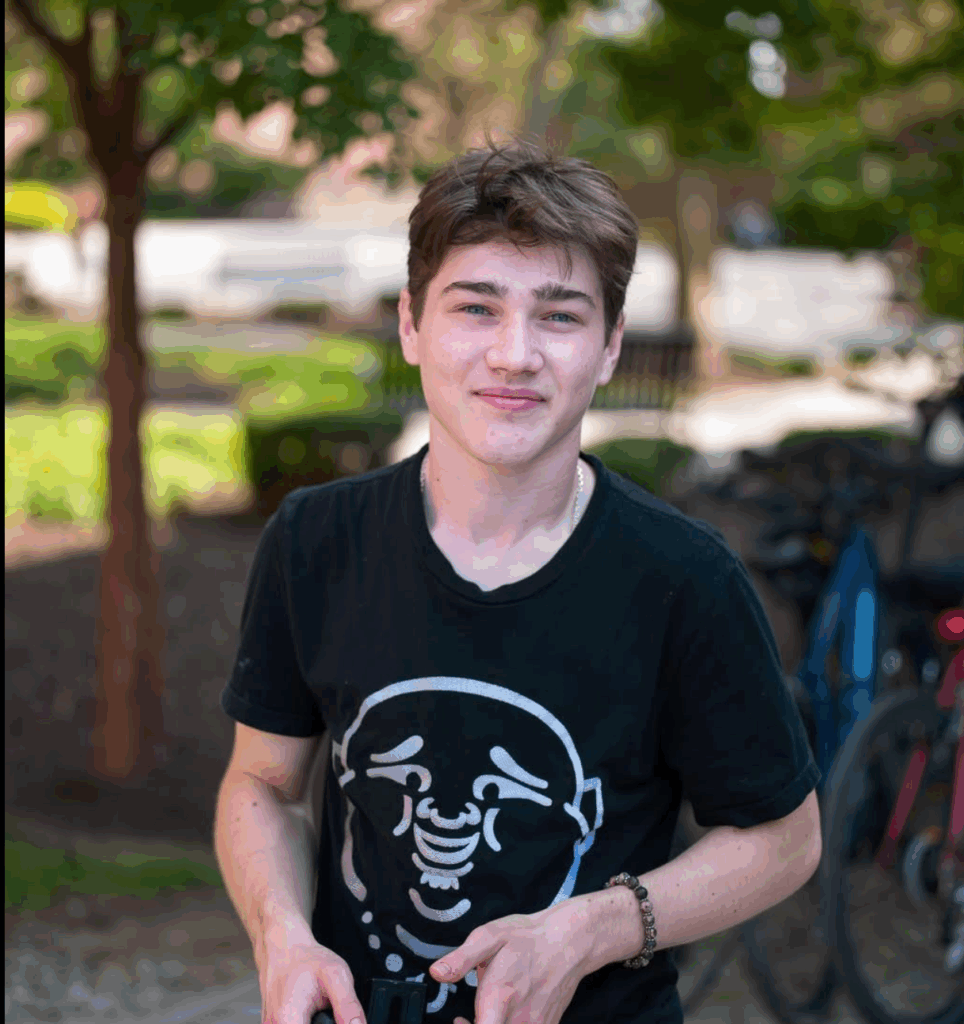
Carlos Sanchez is a New Jersey/New York based photographer, who captures a diverse range of subjects. He started photography at Columbia High School, where he took classes in art history, studio art, and graphic design. He now studies Photography & Visual Media at the Rochester Institute of Technology.





